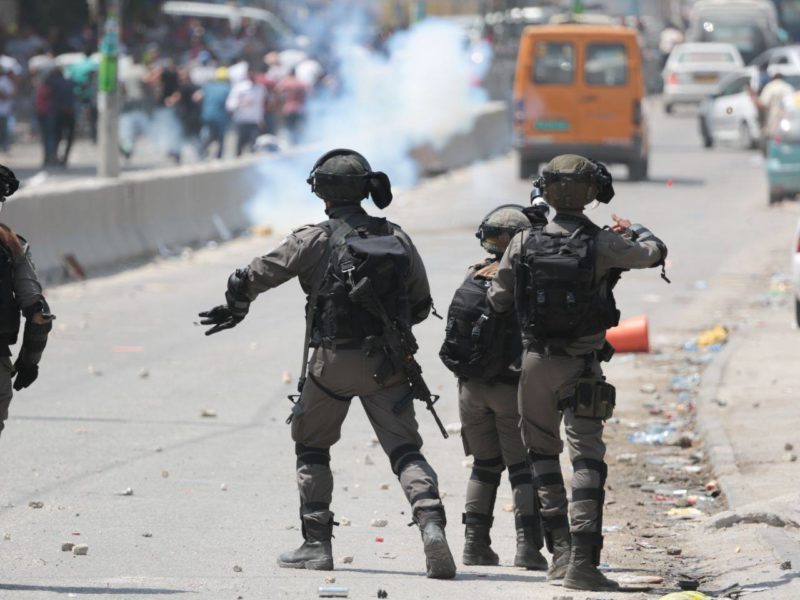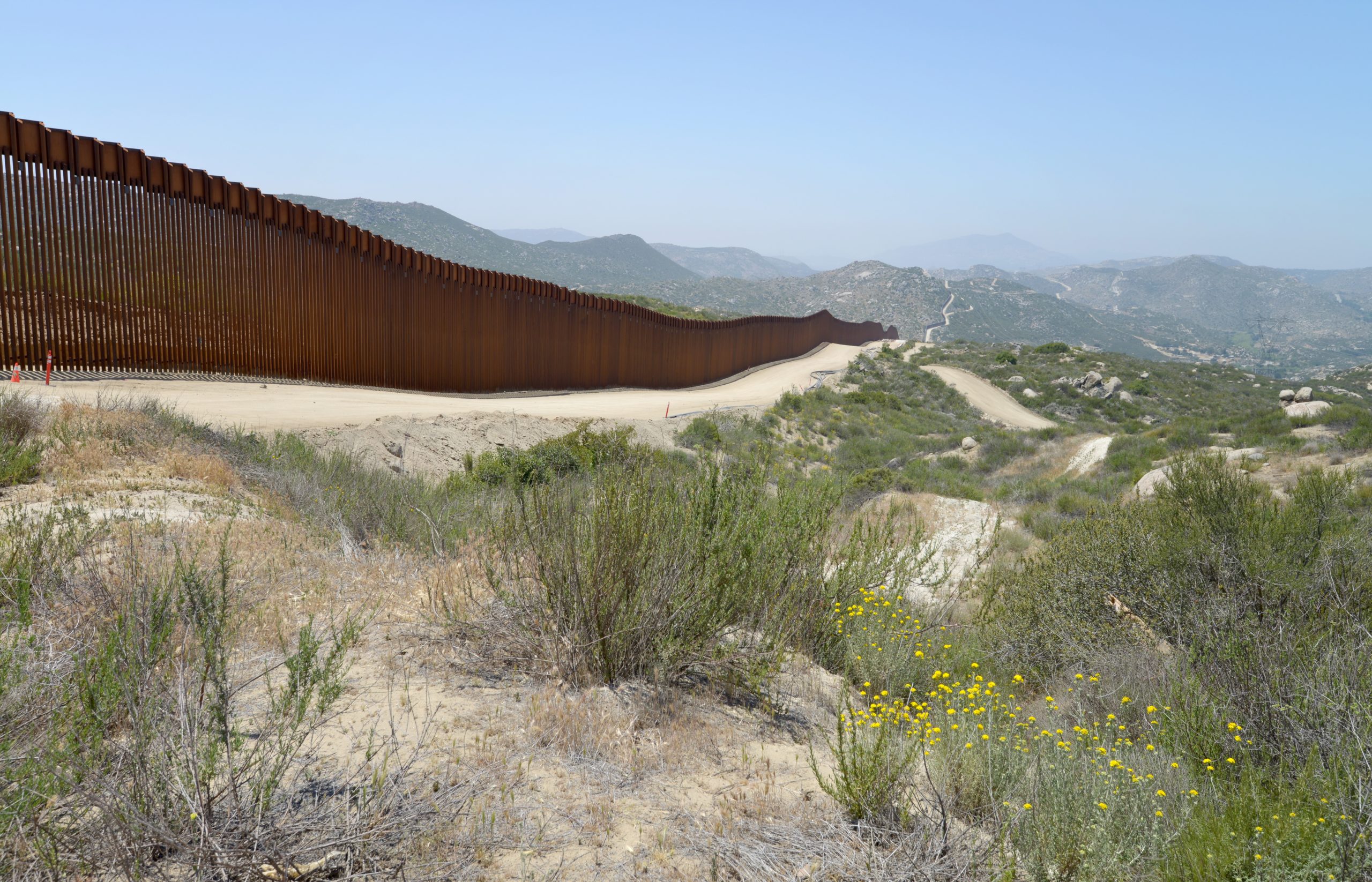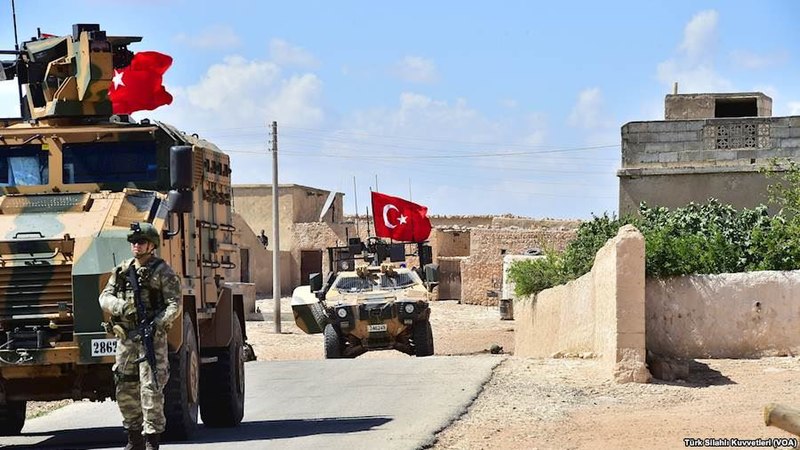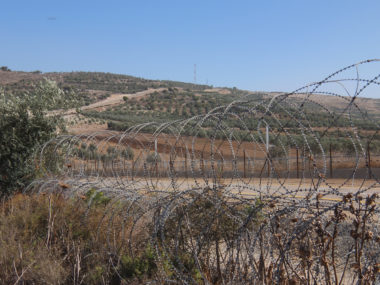A recent headline from the Israeli newspaper Haaretz describes a familiar event: “West Bank Palestinian Village Residents Flee Amid Ongoing Settler Violence.” In many respects, this is old news. Settlers have been terrorizing Palestinian residents for decades, and 2023 appears to be a particularly horrific year. In response to these criminal acts, the Israeli army and government have tended to look the other way. The military is often slow to react or a no-show when settlers take to the streets and rampage through Palestinian villages or uproot olive trees. The Israeli government rarely attempts to arrest or punish the offenders, often citing a lack of evidence or persuasive identification of suspected perpetrator, but the dominant reasons range from ideological sympathies with the settlers to the indirect benefits of keeping Palestinians in fear.
The international community has developed a moral register and set of possible responses for such situations: a responsibility to protect. The general claim is that when the state fails in its responsibility to protect its citizens and civilians, then the international community inherits this duty. The original formulation applied to situations of genocide, crimes against humanity, and war crimes, but it has expanded over the years to include less severe events and apartheid. These and other state-sponsored or state-enabled actions now sometimes go by the name atrocity crimes. Additionally, the United Nations and other international bodies have a protection of civilian mandate, as do many humanitarian and human rights agencies.
These various protection discourses and mandates were built for situations like the territories. Israel has routinely violated international law, including that related to refugees, human rights, and occupation. In addition, it has demonstrated an unwillingness to provide protections for Palestinians from the growing number of settlers. But the international community—specifically the West—has failed to act for two major reasons. It tolerated these abuses and arbitrary rules in the name of the peace process. The peace process led Western states to hold their tongues, creating something of a human shield for Israel. Relatedly, the US, for reasons owing to the peace process and domestic politics, played the role of protector of last resort in various international bodies and, most visibly, in the UN Security Council, where it reflexively vetoes any resolution that is critical of Israel. Only in the last days of the Obama administration did it find the “courage” to abstain. The US has been Israel’s “get out of jail free” card.
The peace process has been dead for at least a decade and there is now a “one-state reality” from the river to the sea. In this one-state reality, Palestinians have few rights or protections and Jewish privilege is enshrined in various laws and rules that systematically discriminate against Palestinians, providing strong evidence for claims that Israel is now an apartheid state.
The question is: what is the US and the international community prepared to do to stop these mass violations of human rights? The recent history of efforts by the international community and the UN to protect civilians gives little reason for optimism. Where the international community has intervened, it has usually been in cases of active war, which does not currently apply to Israel. There is much less success with lower levels of violence. Without enforcement mechanisms, human rights law has little effect. That said, human rights monitors do have a record of compelling better behavior from those in power. Humanitarian agencies attempt to protect civilians through provision of life-saving resources such as food, water, medical care, and shelter, but have little ability to stop combatants that are determined to harm and terrorize civilians. States, meanwhile, often hide behind sovereignty to deny access to those who want to protect populations at risk. Israel has played this card, even though it has control but not sovereignty over these territories.
The best thing the US and others who have protected Israel can do is change their role from an enabler of the oppression of the Palestinians to an erstwhile guardian. The US should stop reaching for the veto every time a resolution on Israel and its violations of international law comes to the Security Council. Israeli actions should cease being called an “obstacle to peace” and instead be labeled as violations of international law. The US should consider suspending or reducing its aid package, and scrupulously ensure that its financial assistance does benefit Israeli hold over the territories. The international community might consider a role for human rights monitors or using drone and satellite technology to monitor Israeli actions in the territories, and make public their observations and findings. There are many American-born settlers, and if they are involved in violence in the territories they should be prosecuted in a court of law alongside other American-born terrorists. The West might consider placing smart sanctions on Israel and leaders that benefit from Israel’s hold over the territories, or introducing trade restrictions. The European Union and other countries that provide fast-track visas for Israeli citizens should remove this highly desired perk.
Sticks like sanctions often do not work in deterring or compelling action. They often do not hurt enough because the targeted state can often escape them by developing other arrangements and alliances. Alternatively, for states like Israel that might see their cause as integral to the existential identity or security, then they are likely to absorb the pain of the sanctions. But sanctions and other kinds of discursive condemnations can have important symbolic effects. Israel likes to present itself as part of the West and having shared values with the US and other Western countries. Western countries can stop propping up the idea of a “special relationship” built on shared values, now that Israel ceases to share them. It can expel Israel from the Western bloc in the UN and other international bodies.
The international community has developed a range of options for attempting to deter states that trample on the rights of civilians. Few of them have the necessary impact and they often have unintended consequences. But even a serious conversation by the US and the West would be a momentous moment and possibly cause Israel to recognize that its policies have a cost.






3 comments
I’m not clear about the shared values argument. The United States government has often maintained alliances with autocratic states, states that violate international law, and human rights abusers. Not to mention US democracy itself is in a precarious state today. Moreover, even if the United States did adhere to a shared values framework in its alliances, Trump-style authoritarianism would go hand-in-hand with Israeli repression of the Palestinian people.
We agree. My point is fairly straightforward. For the last several decades the US has couched the alliance in the discourse of shared values. It is more than a transactional relationship — a meeting of security interests and exchange of security benefits. It is based on friendship, a common heritage, and a belief in their shared values. But with Israel’s rightward drift and assault on traditional liberal values it is not clear that the shared values discourse can be sustained. This doesnt mean that the US will end the alliance. As you say, the US has lots of alliances and strategic partnerships with illiberal, authoritarian, and criminal states. So the alliance could easily endure. But we need to think of it as an alliance not among “friends” or among those who share a “Western identity” but rather an alliance of convenience. Just like Saudi Arabia, Egypt, and many other Middle Eastern states. If so, we might see in the future a different pattern to US-Israeli relations.
Thank you for this piece.
I’d like to see US aid to Israel AND Egypt reduced on human rights grounds.